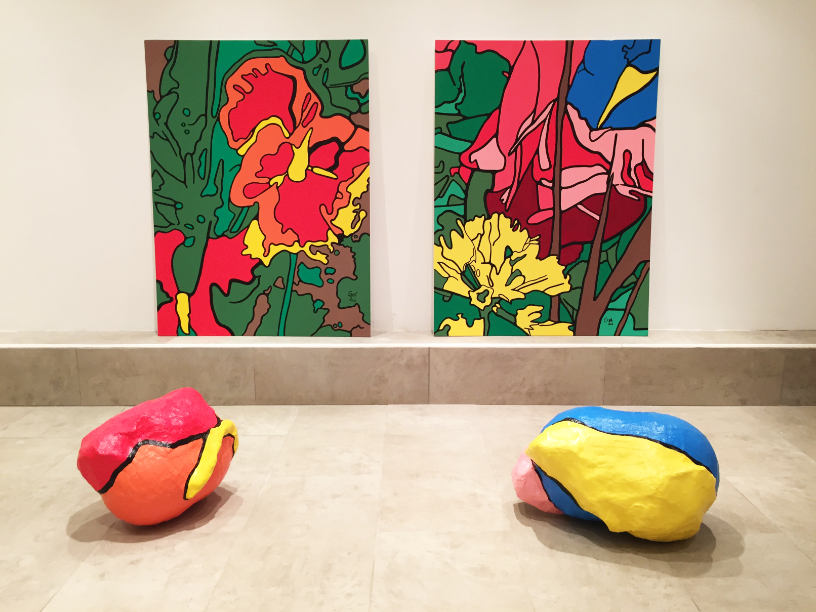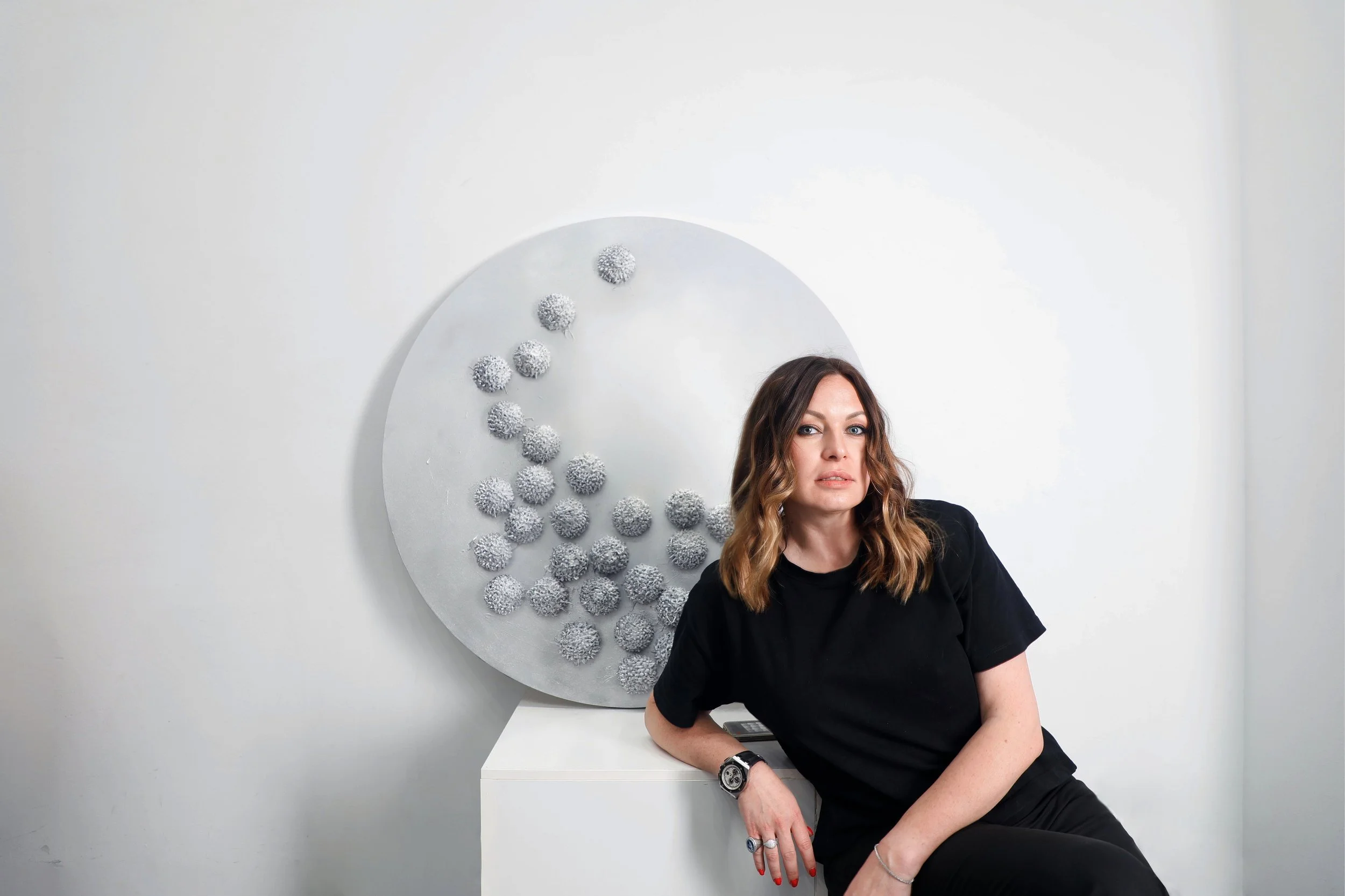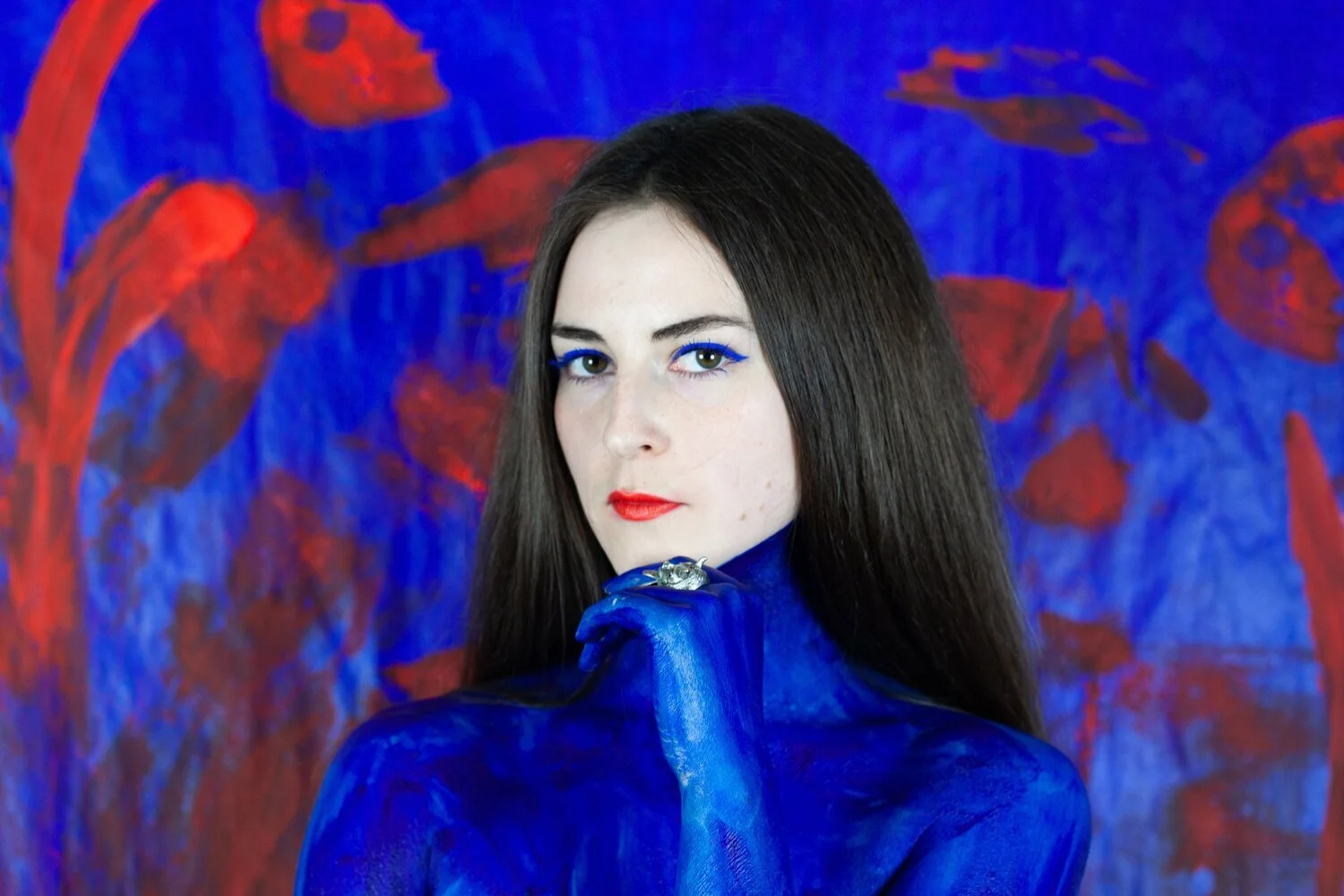10 Questions with Emma Coyle
Emma Coyle is a multidisciplinary artist featured in Al-Tiba9 magazine ISSUE04, interviewed by Mohamed Benhadj.
A small body photography series of floral images became the base for Emma Coyle’s abstract work. Her art began with each photograph being minimally drawn, taking away its 3-dimensional aspect, and then sized up on the board or canvas. Her work questions what can be considered a painting, how abstract art is evolving, and how artists can develop ideas to create something of their own.
Emma Coyle, before talking about your art, could you tell us about yourself? What inspires you?
I have had a strong interest in first wave 1950’s American Pop art for many years. Viewing work by James Rosenquist in the Solomon Guggenheim had a big impact on me at an early age, the bright colors and sheer size of the work were so impressive. My current figurative work is focused on keeping initial ideas from this period but wanting to make very contemporary imagery. Regarding my abstract work, I am very interested in minimalism and what limitations you can push ideas to.
How did you decide to pursue a career in art?
I think the career part came much later. When I started my studies in the late 90’s I was just excited about the idea of making art. I really liked the process of marking something no matter what art form it came under. My very early studies covered everything from darkroom photography, ceramics to graphic design.
How would you describe your artistic approach?
I do a lot of researching images and preliminary work for my figurative and abstract work. Preliminary work and planning ahead are very important to the process and completion of each piece I work on. From focusing on line work to color, it can take months of drawing and working with images before I pick up a paintbrush.
Your work questions the ideas of what can be considered a painting. What is painting for you?
For me, it’s a very basic concept at the moment. It is solely the process of applying paint to a surface, a medium to put across ideas.
At first, we needed time for reflection to know if your work is a painting, illustration or drawing. Please tell our readers about the intersection between these different artistic mediums.
It is the basic process of executing an idea within art. I start with drawing/illustrating and then progress into painting for the final piece.
The final result of your work is very minimal. What is the way from the complex process to minimal Pop art?
Pop art in itself is not complex, it is a very structured art form. The process consists of taking media or advertisement images and breaking them down or altering the image.
Tell us about how and why you end up with the result that pleases you?
It is all about taking away from the initial image, subtracting detail and line work. This starts during the preliminary drawings right through to painting over lines on the canvas. I will take away detail on a figure even if it abstracts the form so that the canvas is not overcrowded.
What do you find most challenging about being an artist? Any advice for artists following your path.
I don’t think there is anything challenging, you just need to remember that what you are doing is for yourself, you want to complete work that means something with substance, not just making art for the sake of it.
An education within art is also very important no matter what stage your career is at. Not only steadily working on your art to enhance your level of skill but also visiting museums/galleries and reading about past/current art and artists is extremely important.
Can you give an example of an artwork that you have made that you feel is especially successful?
I’m very excited about my new series Binary, I am touching on a lot of ideas which I have not dealt with before. Using multiple forms, white backgrounds, putting a strong narrative in each piece.
Any project that we will be able to see soon?
Along with the Binary series, I am also working on a series titled Linda. It is a continuation of the single figure paintings. Both will be expanded this year and next year. I am also working on a new abstract installation which is very much a continuation of Towers. Working with the idea of taking a two-dimensional painting, breaking it down and using a space to bring the painting to the viewer. This project is very much at the start and due for completion in late 2019/2020.



















